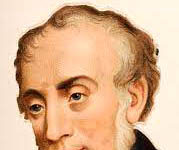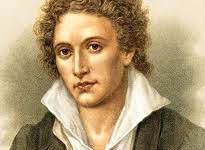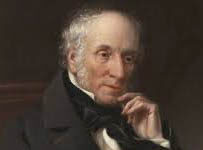Diverse Movements in World Literature
Diverse Movements in World Literature
Diverse Movements in World Literature
The panorama of literature, akin to a vast river network, encompasses an array of currents that converge and diverge, each channeling its own distinct movement. Just as a river’s tributaries traverse landscapes, these literary currents traverse time and culture, influencing and intermingling with the very fabric of human expression. Each current, much like an artist’s brushstroke, contributes to the evolving tapestry of literary evolution. The different literary movements that arose in different ages of human civilization in world literature may be summarised below:
The Epochs of Enlightenment and Rationalism: Imagine literature as a radiant lantern illuminating the path of human reason amidst the shadows of ignorance and superstition. The Enlightenment and Rationalism movement, born in 18th-century Europe, acted as this beacon, spotlighting the errors of society’s traditional beliefs. Just as a lighthouse guides ships through turbulent waters, writers like Voltaire emerged as luminaries, dispelling ignorance through their writings. Voltaire’s satirical novella “Candide” serves as an emblematic work, skillfully exposing societal fallacies through wit and skepticism. This illuminating discourse on optimism’s follies intricately threads into the larger fabric of Enlightenment thought, exposing the complex interplay between reason and faith.
The Romantic Canvases of Emotion: Romanticism unfolds like a blossoming garden where emotions bloom in vivid hues, permeating the air with their enchanting aroma. This movement exalts individualism and reveres the sublime in nature and art. In the 19th century Europe, William Wordsworth’s celebrated poem “I Wandered Lonely as a Cloud,” the reader is transported to the poet’s emotional landscape, where a field of dancing daffodils becomes a reflection of his own profound experience. Wordsworth’s poetic brushstrokes, akin to a masterful artist’s delicate touch, create an evocative tableau of nature’s beauty, resonating with the reader’s soul and painting the emotional textures of the Romantic era.
Realism’s Reflective Mirrors: Realism functions as a reflective mirror, candidly echoing the truths of life without embellishment or distortion. This movement seeks to portray existence in its unvarnished state. Just as a polished mirror offers an unfiltered reflection, writers like Gustave Flaubert strive for an unembellished portrayal of human experience. His seminal work “Madame Bovary” stands as a stark mirror reflecting the limits and disillusionments of a provincial woman’s life. Flaubert’s prose functions like a transparent window, capturing the nuances of Emma Bovary’s desires and eventual downfall with a clarity akin to life itself.
The Symbolist’s Kaleidoscope of Metaphors: Symbolism operates as a kaleidoscope, where each twist reveals a new mosaic of meaning and emotion. This movement harnesses the potency of symbols and metaphors to convey abstract concepts and inner truths. In the late 19th to early 20th century Europe, the poetry of Charles Baudelaire, exemplified by his collection “The Flowers of Evil,” the deployment of symbols like flowers and candles weaves an intricate mosaic of emotions and ideas. Baudelaire’s metaphoric brushwork, reminiscent of an adept painter’s skillful strokes, fashions a rich and evocative tapestry that deepens the understanding of the human experience, exploring the delicate balance between beauty and darkness.
The Avant-Garde’s Bold Strokes: Avant-garde literature unfurls like a canvas splattered with daring and experimental brushstrokes. This movement defies conventions, pushing the boundaries of narrative structure and linguistic expression. In the 20th century, in Europe and beyond, James Joyce’s magnum opus “Ulysses” stands as an exemplar of avant-garde innovation. With its intricate web of stream-of-consciousness narrative, Joyce’s work captures the inner monologues and experiences of characters in a revolutionary manner. Like a visionary artist working with unconventional materials, Joyce’s prose constructs a mosaic of perspectives and techniques, forming an intellectually stimulating yet challenging masterpiece.
The Absurdist Weavings of Existence: Absurdist literature functions as a mirror, reflecting the absurdities and uncertainties of human existence. This movement encapsulates life’s contradictions with a touch of somber humor. In 20th-century Europe, Samuel Beckett’s iconic play “Waiting for Godot” serves as an intricate mirror, reflecting the futility of life’s pursuits through the lens of two characters endlessly awaiting someone who may never arrive. Beckett’s narrative craftsmanship, akin to an artisan weaving intricate patterns, unfurls a bleak yet thought-provoking tapestry of existence’s absurdities and the existential questions they provoke.
The Postcolonial Mosaic of Voices: Postcolonial literature resembles a mosaic, meticulously piecing together diverse voices and experiences from regions once subjected to colonization. This movement challenges dominant narratives and reclaims cultural identity. In the 20th century, writers from various parts of the world contributed to this mosaic. Chinua Achebe’s acclaimed novel “Things Fall Apart” is a testament to this mosaic. Through its multifaceted portrayal of Igbo culture in the face of British colonization, Achebe’s prose acts as a skillful artisan, weaving intricate tiles of perspectives that reflect the complexities of cultural clash and resilience. This literary mosaic, like a historian’s compilation of artifacts, reframes historical narratives, ensuring marginalized voices find their rightful place in the broader narrative of humanity.
In conclusion, the various currents in global literature seamlessly weave a rich and intricate fabric of human expression. Each movement, whether it be the illuminating Enlightenment, the emotional Romanticism, the candid Realism, the symbolic Symbolism, the daring Avant-garde, the introspective Absurdism, or the inclusive Postcolonialism, contributes its distinct colors and patterns to the ever-evolving tapestry of literary history. These movements, like interwoven threads, have shaped the literary landscape, leaving behind a legacy that continues to inspire, provoke contemplation, and celebrate the kaleidoscope of human experience. 0 0 0.
Diverse Movements in World Literature
N.B. The article ‘Diverse Movements in World Literature’ originally belongs to the book ‘The Origin Evolution & Functions of Literature‘ by Menonim Menonimus. Diverse Movements in World Literature
Books of Literary Criticism by M. Menonimus:
- World Short Story Criticism
- World Poetry Criticism
- World Drama Criticism
- World Novel Criticism
- World Essay Criticism
- Indian English Poetry Criticism
- Indian English Poets and Poetry Chief Features
- Emily Dickinson’s Poetry-A Thematic Study
- Walt Whitman’s Poetry-A Thematic Study
- Critical Essays on English Poetry
- Tawfiq al-Hakim’s Novel: Return of the Spirit-An Analytical Study
- Tawfiq al-Hakim’s Novel: ‘Yawmiyyat Naib Fil Arayaf’-An Analytical Study
- Analytical Studies of Some Arabic Short Stories
- A Brief History of Arabic Literature: Pre-Islamic Period (500 AD-622 AD)
- A Brief History of Arabic Literature: Early Islamic Period (622 AD-661 AD)
- Reviews on William Shakespeare’s Works
- Reviews of Charles Dickens’ Works
- Reviews of John Milton’s Literary Works
- Reviews of Some Iconic Travelogues
- Shakespeare’s Sonnets-Critical Studies
- Analytical Studies of Selected Poems of Sarojini Naidu
- Analytical Studies of Selected Poems of Rabindranath Tagore
- Analytical Studies of Selected Indian English Poems
- Reviews of Selected Motivational Books
- Origin Evolution & Functions of Literature …
Additional Searches::
- The Functions of Literature
- Evolutionary Literary Study
- Functions of Literature
- Principles of Literature
- Literary Theory
- Expressing Diversity in World Literature
- Literary Movements











